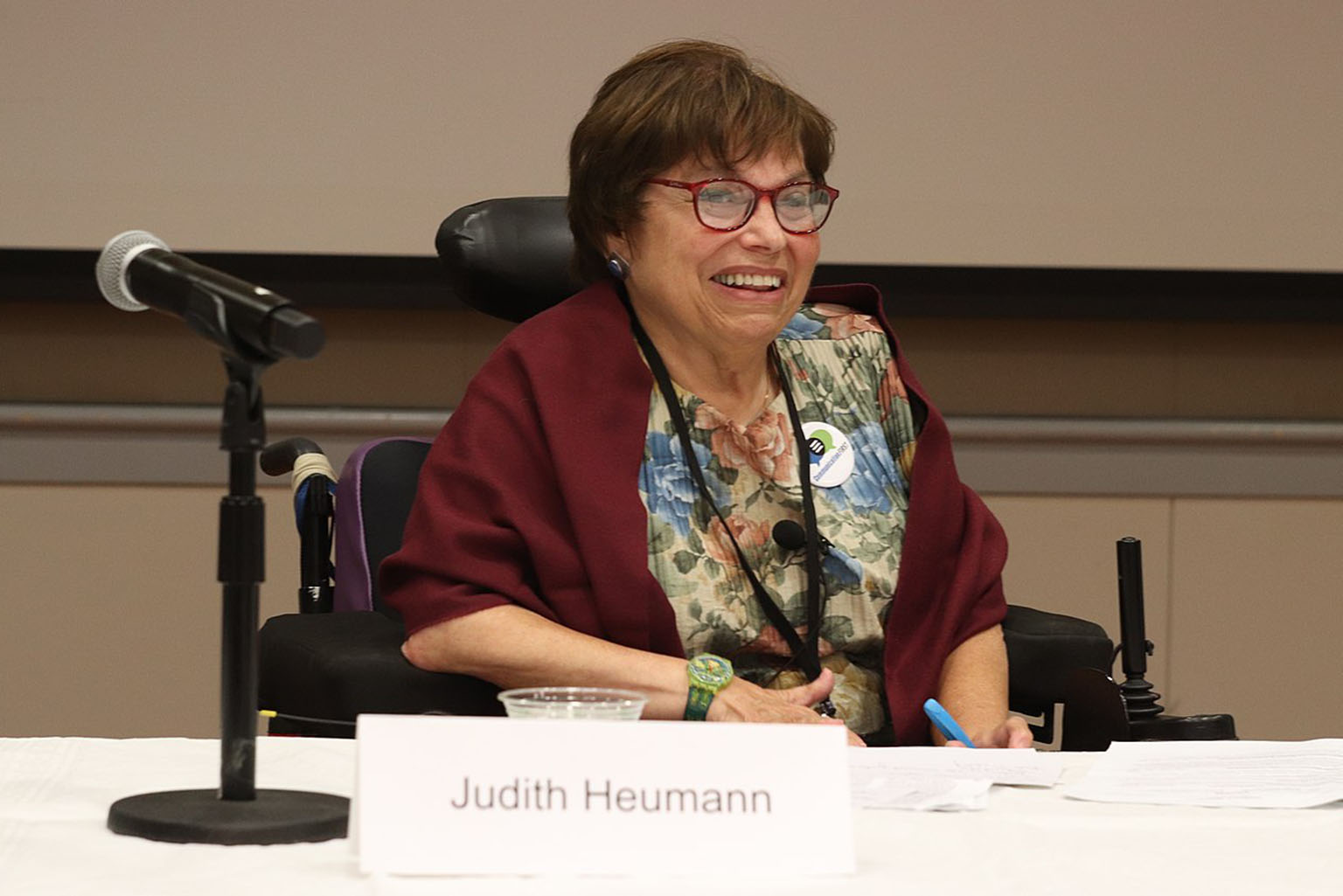Judith “Judy” Heumann was the mother of the disability rights movement. And although you may think you know her, you may not know her whole story. Her legacy is deep.
Young Life
At the early age of 2, Judy was diagnosed with polio. When she was ready for kindergarten, Judy’s mother dragged her wheelchair up the stairs to take her daughter to the first day of school. For Judy and her mother, it was a day they never forgot. The principal said Judy’s wheelchair was a fire hazard and sent Judy home. Judy’s mother homeschooled her, and Judy grew up watching her mother’s ongoing advocacy.
“As the modern-day mom of two sons who are developmentally disabled, I owe so much to Judy Heumann’s mother Ilse for standing up for her daughter, despite all of the professional advice she received at the time,” said Stacy Mason, Licensed Clinical Social Worker (LCSW) and parent trainer for families who have children with IDD. “Judy said, ‘Telling Ilse Heumann that something wasn’t possible was a big mistake.’ As mothers of children with IDD, we all aspire to follow her example.”
Adult Activism
Judy found more exclusion in her adult life when she wanted to be a kindergarten teacher. The City of New York denied her a teaching license, pointing to concerns that she would be unable to evacuate herself or others in an emergency. Judy sued and won, becoming the state’s first teacher in a wheelchair. In the wake of this injustice, she founded Disabled in Action, a civil rights organization committed to ending discrimination against people with disabilities.
Years of segregation during Judy’s life moved her to more activism. In 1977, she co-led a series of sit-ins that became the foundation for the Americans with Disabilities Act (ADA). Protests lasted over 26 days, with many disabled activists and allies risking their lives. The sit-ins led to a law requiring any entity receiving government funding to adhere to accessibility standards.
“Judy’s activism came from her heart and soul,” said Jaime Madden, COO of ACA/NY and LIFEPLan. “She gained purpose from her experience and used it to fuel her passion. Making significant changes to the status quo often requires someone who has faced adversity, and that adversity can shape them into the leader they become.”
Judy became a crucial player in the disability rights movement. She helped to develop and ensure the implementation of the Individuals with Disabilities Education Act, the Americans with Disabilities Act, the Rehabilitation Act, and the U.N. Convention on the Rights of Persons with Disabilities.
Judy’s credibility led her to become head of the Office of Special Education and Rehabilitation Services, an appointment made by President Clinton. She was the World Bank’s first advisor on disability and development. President Obama appointed her as the first Special Advisor on International Disability Rights for the U.S. State Department. Judy was the first person with a disability to serve on the board of Human Rights Watch.
As recent as 2017, Judy continued her activism when she was arrested during attempts to overturn the Affordable Care Act. Right up to her passing in March 2023, she was fighting for disability rights.
Change never happens at the pace we think it should. It happens over years of people joining together, strategizing, sharing, and pulling all the levers they possibly can. Gradually, excruciatingly slowly, things start to happen, and then suddenly, seemingly out of the blue, something will tip.
― Judith Hermann, “Being Heumann: An Unrepentant Memoir of a Disability Rights Activist”
Creator with a Disability Lens
Judy took advantage of the new media landscape as her megaphone for advocacy.
In 2020, the Netflix documentary Crip Camp told Judy’s experience at Camp Jened in the 1970s, where she and other young people with disabilities spent their summers and were ultimately empowered to fight disability segregation. The film was nominated for an Oscar.
Judy’s The Heumann Perspective podcast hosted conversations around disability culture, art, entertainment, policy, and advocacy. True to Judy’s nature, it reflected a call to action for social justice and took advantage of the podcast trend.
“Judy Heuman became a life-long change agent by leveraging the best tools to communicate, whether a 1970s sit-in or sharing her views in a 2000’s era podcast,” said Janelle Fields, LIFEPlan and ACA/NY Vice President of Marketing. “Effective leaders move with the times to reach their audience.”
In her memoir, Being Heumann, an Unrepentant Memoir of a Disability Rights Activist, Judy wrote, “We were learning that despite what society might be telling us, we all had something to contribute.”
We thank Judy Heumann for her contributions to the rights and quality of life of people with disabilities. She remains an inspiration for all of us to continue the fight for her.

